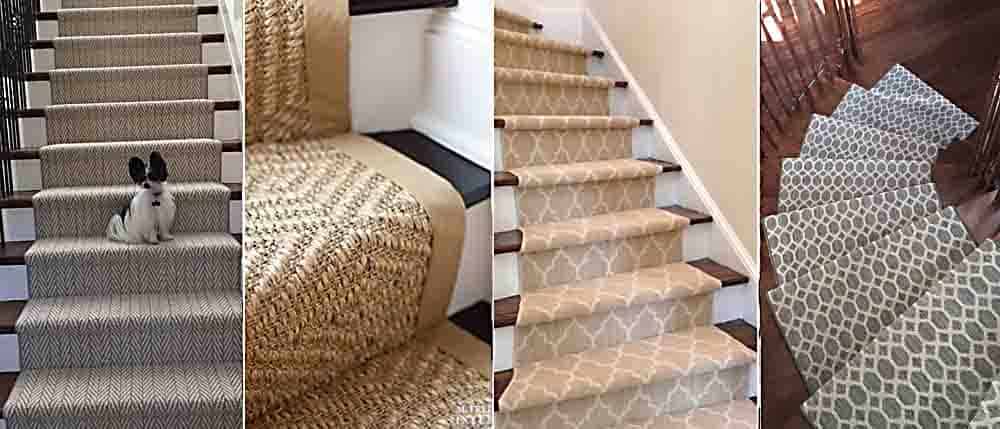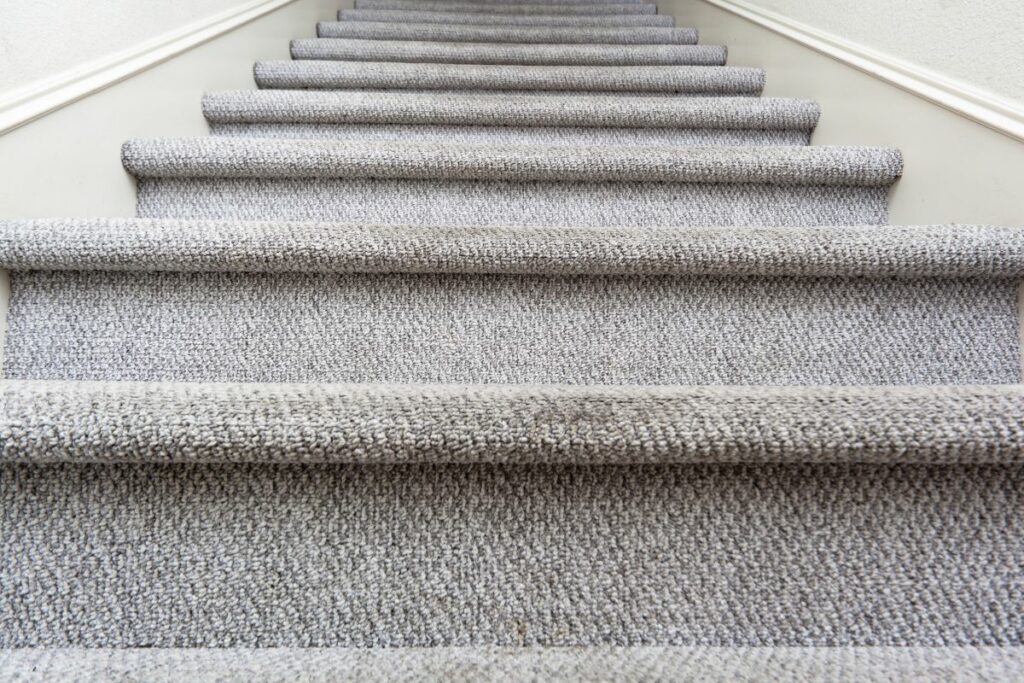Carpet remains a popular choice for flooring in UK homes, offering comfort, functionality, and aesthetic appeal. This extends to carpeting stairs, whether you’re replacing existing carpet or installing it for the first time. To ensure a smooth installation process, it’s crucial to accurately measure your stairs.
While hiring a professional is an option, measuring stairs for carpet can be a DIY task. In this article, we’ll guide you through the process, providing step-by-step instructions for each section, from the landing to the stairs and hallway.

The Benefits of Carpet for Stairs
Carpeting stairs is a prevalent flooring method in the UK, offering various practical and aesthetic advantages:
Safety
Carpets provide a non-slip surface, enhancing safety and reducing the risk of accidents, especially on stairs.
Sound Dampening
Carpeting helps reduce noise transmission, muffling sounds within your home and minimizing disturbances for neighbors, particularly beneficial in multi-storey homes.
Comfort
Offering unparalleled comfort underfoot, carpets make the experience of walking up and down stairs more pleasant, reducing strain on feet compared to other options.
Insulation
Carpet on stairs adds an extra layer of insulation, reducing heat loss and potentially leading to energy savings.
Enhanced Aesthetics
Carpeted stairs contribute to the overall look of your staircase, allowing customization to match your interior design and personal style.
Prevents Wear and Tear
Carpets protect stairs from wear and tear, hiding imperfections and minor damage, ensuring durability and longevity.
- Durable and Easy to Maintain
High-quality carpets are durable and can withstand heavy foot traffic. Additionally, modern carpets are designed for easy cleaning and maintenance.
How to Measure Stairs for Carpet
Measuring stairs for carpet involves several steps, requiring different approaches for each section. Here’s a guide to simplify the process:
Gather Your Equipment
Collect essential tools, including a tape measure, pen or pencil, a sheet of paper, and a ruler.
Take Notes
Record all measurements to avoid confusion. Start from the upstairs landing and work your way down the stairs.
Measure the Landing
Draw a floor plan, ensuring the stairs’ location is accurately noted. Measure the landing, including any doorways, and extend measurements down the top stair tread.
Measure the Stairs
Note the number of straight and winder stairs. For straight stairs, measure from the back of the previous stair to the next tread, including width. Measure winders individually.
Measure the Turn (If Necessary)
For staircases with a half landing, measure the width across the turn and back down. Measure winders separately, noting dimensions.
Measure the Hallway
Draw a floor plan for the hallway, measuring as you would for any room. Include doorways, alcoves, and take measurements from wall to wall if needed. Indicate the stairs’ entry point on the floor plan.
By following these steps and maintaining accuracy, even a novice DIYer can effectively measure stairs for carpet installation. Explore our site for more helpful DIY and interior design tips.

